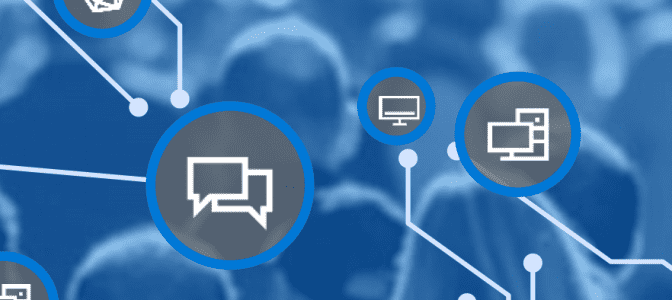
Microsoft works with the World Bank to boost emerging economies
Technology seems to be everywhere – but for a substantial part of the world, its benefits are elusive. The World Bank’s World Development Report 2016, “Digital Dividends,” released in January 2016, finds that technological changes have not improved access to public services or increased economic opportunities as had been expected. “Digital technologies are spreading rapidly, but digital dividends—growth, jobs, and services—have lagged behind,” the report says. Key components impeding digital dividends include internet access (today 4 billion people on the planet don’t have access), stronger regulations that ensure competition among businesses, enabling 21st century worker skills and promoting good governance. At Microsoft, our mission is to empower every person and every organization on the planet to achieve more. We are committed to helping emerging economies achieve life-changing digital transformations and ensure that people all over the world have the tools, education, and technology to help transform their lives for the better. Grounded in this worldview, I believe that organizations like Microsoft have the responsibility to offer the technical assistance and insight to empower countries to harness the power of technology and create a broad range of economic and social opportunities worldwide. Through strong public-private partnerships, the gap between those who have access to the benefits of digital technologies and those who don’t can be significantly narrowed. To that end, I am very proud that Microsoft is one of the founding launch partners of the Digital Development Partnership (DDP) – a unique partnership designed to address the findings of the World Development Report by closing the digital economy divide for emerging economies. It is a partnership for enabling digital dividends for all. [inlinevideo header=”Digital Development Partnership” description=”” videoimage=”https://msenterprise.global.ssl.fastly.net/wordpress/2016/10/ttw2.png” video=”http://az370354.vo.msecnd.net/videos/Digital_Development_Partnership_World_Bank_3M.mp4″] The immediate focus of our partnership is on enabling countries to achieve digital dividends through 4 critical areas:
- Data and Indicators – Help assessing and benchmarking countries’ digital readiness through data and diagnostic tools;
- Digital Economy and Innovation – Drive innovation and create new markets through the development of digital platforms & solutions;
- Internet Access for All – Create new business models that include a focus on enhanced connectivity and Internet access for emerging countries – with an emphasis on access for the poor and people living in rural areas; and finally
- Digital Government – Establish digital government infrastructures and services for all.
Technology is a powerful agent of change for solving many of the challenges facing countries today as they move toward sustainable growth and inclusive development models that are made possible through Digital Transformation. Accordingly, we are looking at areas where we can accelerate economic development by harnessing the effective deployment of technology innovations. Two examples are illustrating the power of partnership and innovation.
- To improve technology access for citizens who are currently without Internet access, Microsoft and Kenyan Internet Service Provider Indigo have partnered to help the Kenyan Ministry of Information and Communications deliver high-speed internet access to areas lacking even basic electricity. The deployment is called “Mawingu,” which is Kiswahili for cloud. It is the first deployment pairing solar-power with TV white spaces, a technology partially developed by Microsoft Research, and it is bringing new opportunities for commerce, education, healthcare and delivery of government services across Kenya.
- Establishing intelligent transportation is another key to economic development for emerging economies. Embedding the Internet of Things not only within vehicles but within a country’s infrastructure so that goods, labor and routes are all connected will make huge strides in a region’s progress and economic opportunity. The Trans Kalahari Corridor, as an example, is a high-volume network of roads spanning some 1,200 miles across Botswana, Namibia and South Africa. With intelligent transport, we can find out how many trucks and goods are going through, manage the flow, and increase operational efficiency in crossing borders. It is also about knowing what citizens and businesses should expect, digitally filling forms so containers can be tracked easily, as well as shortening times on routes and at border stops.
As the World Bank works to address these digital development issues, Microsoft will continue to be a willing partner, committed to facilitating access to affordable broadband access for all, to promoting and protecting the digital infrastructure, and to mainstreaming digital innovations so that people all over the world can benefit. When we work together and embrace the power of trusted, responsible, and inclusive technology, there is so much more that we can achieve. Microsoft is proud to be a part of the Digital Development Partnership for enabling digital dividends for all. #MSFTempowers




